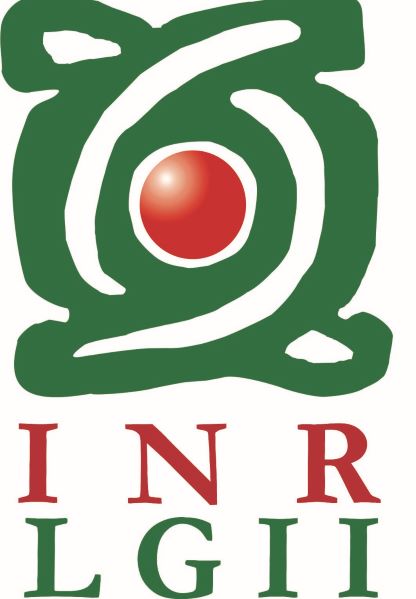Methodology for the replacement of high-tech medical equipment, applying economic evaluation and business process analysis
DOI:
https://doi.org/10.35366/107509Keywords:
business process modeling notation, cost-effectiveness analysis, health economics, health technology assessments, health technology management, medical devicesAbstract
Introduction: decision-making about when MEs replacement should take place is a traditional hospital challenge due to its high cost for health institutions and the risk it could represent in any existing medical care practice or procedure. The Health Technology Assessment (HTA) for MEs allows prioritizing its replacement in a hospital. Most MEs replacement evaluations focus solely on cost analyses; however, these evaluations do not consider the full role that MEs play in the healthcare processes in this sense, the investment cost of the equipment and other critical factors to evaluate the process, costs and productivity must be considered either. Objective: this paper proposes a methodology to support the decision to replace or not MEs, based on economic evaluation and business process analysis. Material and methods: cost-effectiveness, intermediate effectiveness, and process workflow analysis are applied. The best MEs alternative is identified through a decision-tree and time indexes, productivity and performance indicators. This methodology was tested by evaluating, as a case study, whether it is necessary to replace the sterilizers/washing machine that are in the last stage of their lifecycle, operating in our Central Sterilization Units. Results: the methodology presented in this paper has a high potential to detect delays, measure efficiency, productivity and costs of the processes, and even, based on the workflow analysis, to be able to improve the processes where MEs are operating. Conclusion: furthermore, HTA- ased MEs replacement methodology allows to generate cost-effective information for decision-making at the management level.
Publication Facts
Reviewer profiles N/A
Author statements
Indexed in
- Academic society
- N/A
References
International Network Agencies for Health Technology
Assessment. HTA Glossary.net. 2012. Available in:
http://htaglossary.net/health+technology+assessment
Fiedler BA, David Y. Reframing product life cycle for
medical devices. In: Managing medical devices with
a regulatory framework. Amsterdam; Cambridge, MA:
Elsevier 2017. pp. 3-16.
World Health Organization. Health Topics.2022.
Available in: https://www.who.int/teams/health-productpolicy-and-standards/assistive-and-medical-technology/
medical-devices
Ayala R, Arellanes EE, Moreno E. Gestión de equipo
médico. Centro Nacional de Excelencia Tecnológica en
Salud. 2020.
Ciani O, Wilcher B, Van Giessen A, Taylor RS. Linking
the regulatory and reimbursement processes for medical
devices: the need for integrated assessments. Health
Economics. 2017; 26 (Suppl. 1): 13-29.
Polisena J, Castaldo R, Ciani O, Federici C, Borsci
S, Ritrovato M et al. Health technology assessment
methods guidelines for medical devices: how can we
address the gaps? the International Federation of
Medical and Biological Engineering Perspective. Int J
Tech Assess Health Care. 2018; 34 (3): 276-289.
Tarricone R, Torbica A, Drummond M, MEDTECHTA
Project Group. Key recommendations from the
MedtecHTA project. Health Economics 2017; 26 (Suppl.
:145-152.
Blüher M, Saunders SJ, Mittard V, Torrejon R, Davis JA,
Saunders R. Critical review of European health-economic
guidelines for the health technology assessment of
medical devices. Front Med. 2019; (6): 278.
Drummond MF, Tarricone R, Torbica A. Economic
evaluation of medical devices. In: Hamilton, J.H., (ed.)
Oxford Research Encyclopedia of Economics and
Finance. Oxford University Press, Oxford. 2018.
Tarricone R, Callea G, Ogorevc M, Prevolnik V.
Improving the methods for the economic evaluation of
medical devices. Health Economics. 2017; 26 (Suppl.
: 70-92.
Tarricone R, Torbica A, Drummond M F. Challenges
in the assessment of medical devices: the MedtecHTA
project. Health Economics. 2017; 26 (Suppl. 1): 5-12.
Kingkaew P, Teerawattananon Y. The economic
evaluation of medical devices: challenges. J Med Assoc
Thai. 2014; 97 (Suppl 5): S102-107.
Bektemur G, Muzoglu N, Ali-Arici M, Kaya-Karaaslan
M. Cost analysis of medical device spare parts. Pak J
Med Sci. 2018; 34 (2): 472-477.
Sprague S, Quigley L, Adili A, Bhandari M. Understanding
cost effectiveness: money matters? J Long Term Eff Med
Implants. 2007; 17 (2): 145-152.
Liao HY, Cade W, Behdad S. Markov chain optimization of
repair and replacement decisions of medical equipment.
Resour, Conserv Recycling. 2021; 171: 105609.
Fennigkoh L. A medical equipment replacement model.
J Clin Eng. 1992; 17 (1): 43-47.
Taylor K, Jackson S. A medical equipment replacement
score system. J Clin Eng. 2005; 30 (1): 37-41.
Mora-García T, Piña-Quintero F, Ortiz-Posadas
M. Medical Equipment Replacement Prioritization
Indicator Using Multi-criteria Decision Analysis.
In: Hernández HY, Milián NV, Ruiz SJ. Progress
in Artificial Intelligence and Pattern Recognition.
IWAIPR 2018.
Tobey J. Medical equipment replacement planning. In:
Clinical Engineering Handbook, Florence Italy, Elsevier,
; pp. 227-235.
Hussien HW. Optimized medical equipment replacement
planning. Addis Ababa University. Center of Biomedical
Engineering, Etiopía, 2021.
Secretaría de Hacienda y Crédito Público. Acuerdo por
el que se modifican los lineamientos para el registro en
la cartera de programas y proyectos de inversión. Diario
Oficial de la Federación. 2021.
Instituto Nacional de Rehabilitación. Políticas, bases y
lineamientos generales para la recepción, aceptación,
registro y control de las donaciones en especie que
reciba el Instituto Nacional de Rehabilitación. 2009.
Kristensen F, Sigmund H. Health Technology
Assessment Handbook. Danish Centre for Health
Technology Assessment, Denmark, 2007.
Drummond MF, Sculpher MJ, Claxton K, Stoddart GL,
Torrance GW. Methods for the economic evaluation of
health care programmes, Oxford university press. 2015.
Tomaskova H, Maresova P, Penhaker M, Augustynek
M, Klimova B, Fadeyi O, Kuca K. The business process
model and notation of open innovation: the process of
developing medical instrument. J Open Innov Tech
Market Complexity. 2019; 5 (4): 101.
BizAgi, BizAgi Process Modeler Version 3.8.0.206.
Available in: http://www.top4download.com/
bizagi-process-modeler/crhbwqyd.html
Instituto Nacional de Estadística y Geografía (INEGI).
Índice Nacional de Precios al Consumidor (INPC).
Available in: http://www.inegi.org.mx
Downloads
Published
How to Cite
Issue
Section
License
Copyright (c) 2022 Instituto Nacional de Rehabilitación Luis Guillermo Ibarra Ibarra

This work is licensed under a Creative Commons Attribution 4.0 International License.
© Instituto Nacional de Rehabilitación Luis Guillermo Ibarra Ibarra under a Creative Commons Attribution 4.0 International (CC BY 4.0) license which allows to reproduce and modify the content if appropiate recognition to the original source is given.




